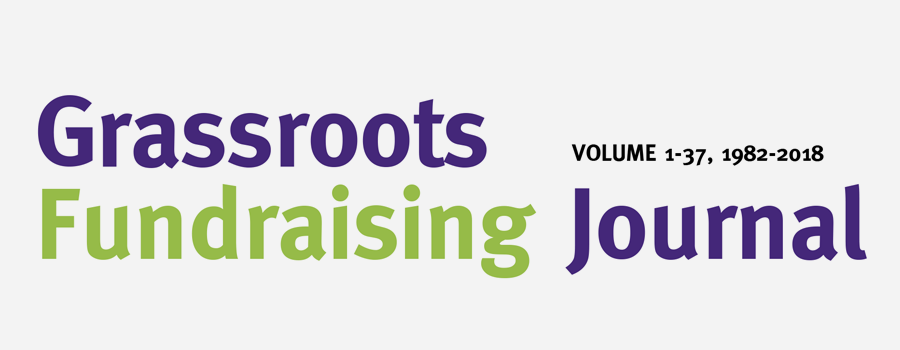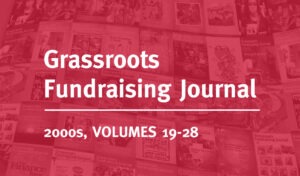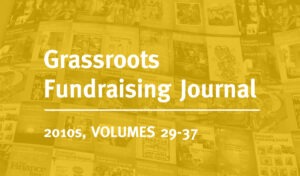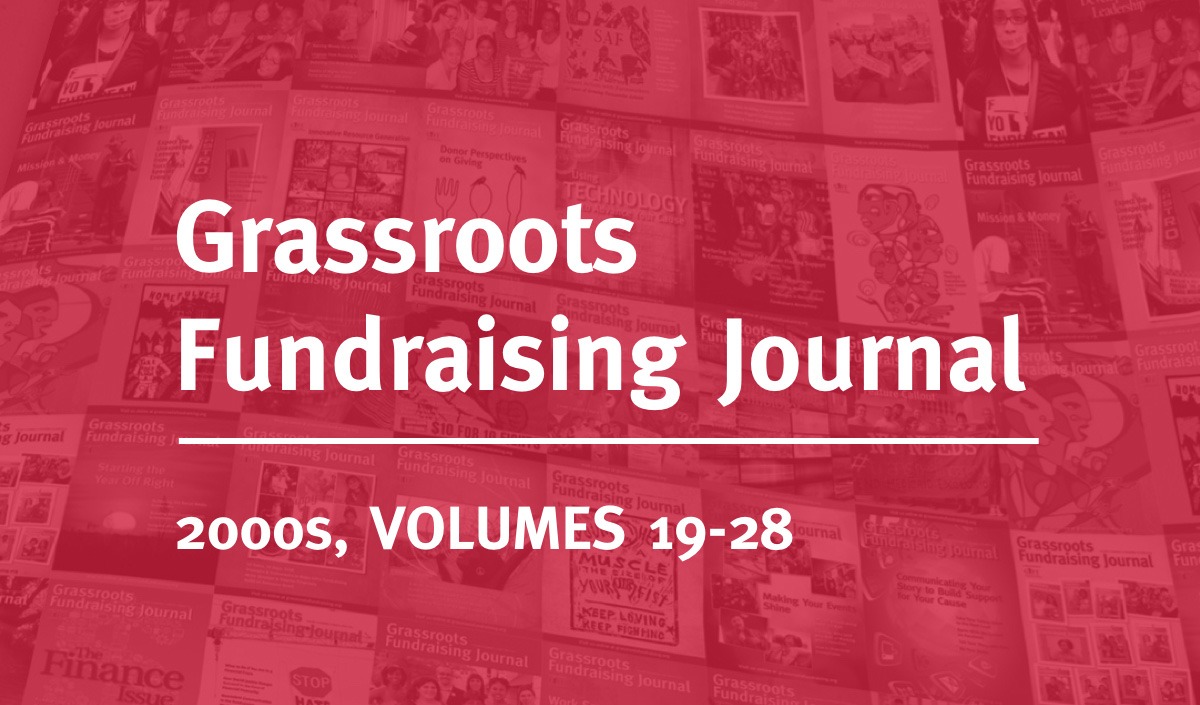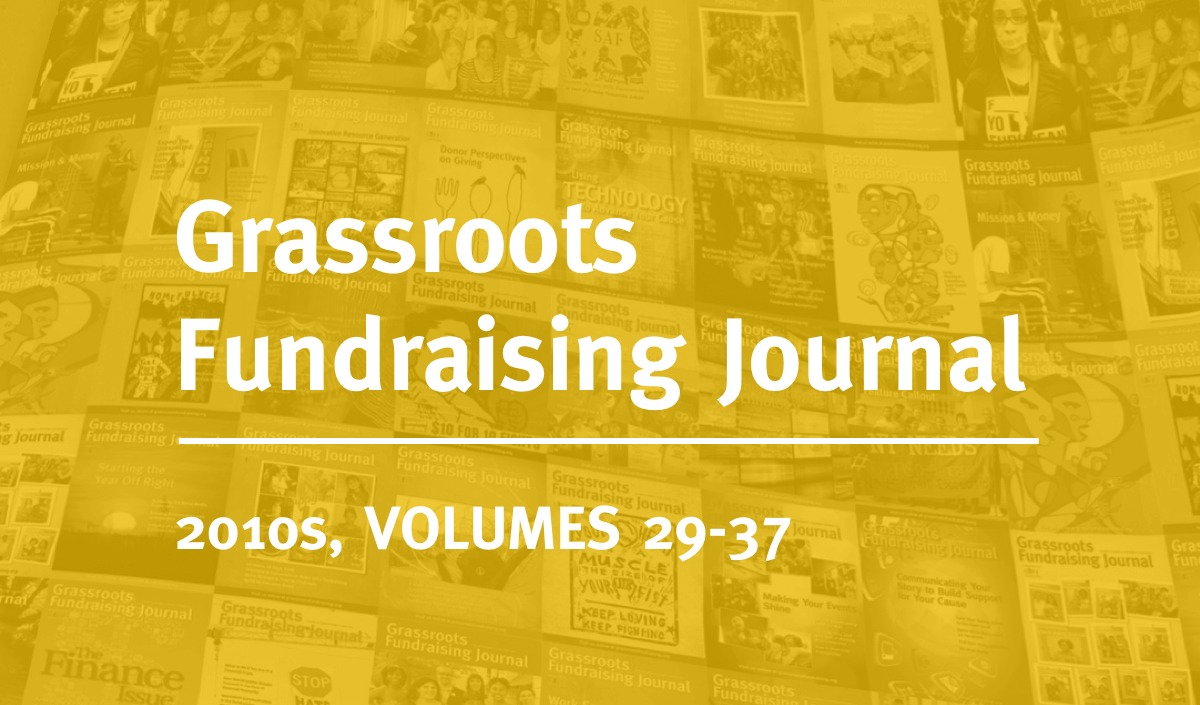
Editors’ note: This article, first published in print during Sep/Oct 2002, has been republished for Nonprofit Quarterly with minor updates.
When we think about the boards, we’re on, we usually think about the board meetings—which says a lot about the importance of having good meetings. Here at the start of the fall fundraising season, make a resolution to implement one of the following ideas each month:
Name tags for everyone, at every meeting.
It’s embarrassing to have seen people at several meetings and wondered what their names are. Later it’s really hard to admit you don’t know their names.
Post an acronym chart.
Make a poster of frequently used external and internal acronyms (such as CDBG for Community Development Block Grants or DV for domestic violence) and post it on the wall of every meeting. (If you distribute the list on paper it is soon lost.)
Write an “anticipated action” for each agenda item.
Examples:
- “Finance Committee report, brief questions and answers: No action needed.”
- “Volunteer recruitment and philosophy: Anticipated Action: form committee of three to four board members.”
- “Public Policy Committee: Anticipated Action: approve organizational statement to city council on zone changes.”
Make sure that each person says at least one thing at every board meeting.
This is the Chair’s responsibility, but everyone should help! “Cecilia, you haven’t spoken on this issue. I’m wondering what you’re thinking about it?” “Matt, at the last meeting you made a good point about finances. Are there financial issues here that we aren’t thinking about?”
Sign up for our free newsletters
Subscribe to NPQ's newsletters to have our top stories delivered directly to your inbox.
By signing up, you agree to our privacy policy and terms of use, and to receive messages from NPQ and our partners.
No one-way communication from staff.
If you have a regular Executive Director’s Report on the agenda, or if a staff program director is giving you a briefing, be sure that such presentations need a response from the board. If not, put them in writing in the board packet and just ask if there are any questions.
Don’t include committee reports on the agenda just to make the committees feel worthwhile.
If a committee has done work but doesn’t need it discussed, put the committee report in the board packet. (In the meeting, be sure to recognize the committee’s good work and refer people to the written report.) Instead, schedule committee reports in the context of the main discussion. For example, if there is a discussion planned on attracting and retaining staff, reports from the Finance Committee and the Personnel Committee may be appropriate.
Note to the board president and the executive director:
What are the two most important matters facing the organization: economic downturn, changes in government funding, decreased preschool enrollment due to higher unemployment, a competitor organization, demographic changes in the county? Is one of these matters on every board agenda?
Encourage “dumb” questions, respectful dissent, authentic disagreements.
Find a chance to be encouraging at every meeting: “Sylvia, I’m glad you asked that ‘dumb’ question. I didn’t know the answer either.” “Duane, I appreciate the fact that you disagreed with me in that last discussion. Even though you didn’t convince me, your comment helped make the discussion much more valuable.”
Make sure the room is comfortable!
Not too hot or cold or crowded. Offer beverages and something light to eat, such as cookies or fruit.
Adjourn on time, or agree to stay later.
Twenty minutes before the scheduled end of the meeting, the Chair should ask whether the group wants to stay later: “If we continue this very interesting discussion, we will have to stay fifteen extra minutes to hear the recommendation on the executive director’s salary. Can everyone stay that long, or should we end this discussion and move to that one immediately?”
BONUS:
Once every year or two, survey the board about meetings. Pass out a questionnaire for anonymous return to the board vice president or secretary, asking, “What do you like best about board meetings? Least?” “Are you satisfied with the items that are usually on the agenda?” “How could the board president do more to encourage discussion at the meetings?” “Is the location or time of day difficult for you?”

